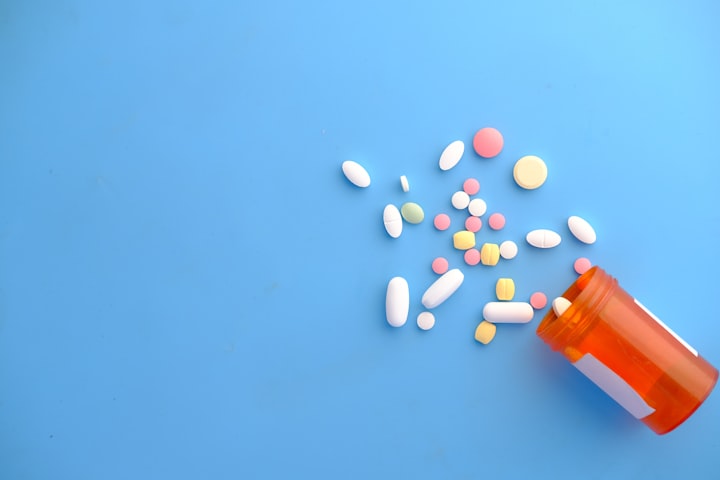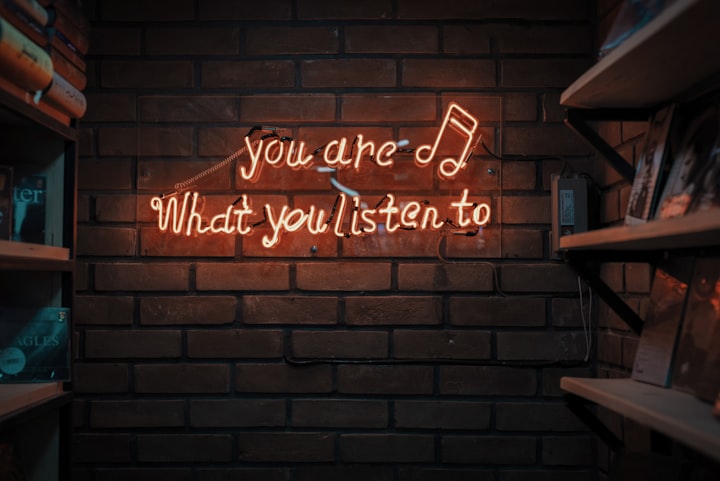It Might Not Be “Aesthetics,” But Medication Is Self Care Too
After years of convincing myself that it would be weak to take them, I found myself in the doctors office asking for pills.

After about six years of convincing myself that it would be weak to take them, I found myself in the doctors office asking for medication. With my voice wavering, sweat gathering on my upper lip and eyes squinting under the bright florescent lights, I explained to a stranger that I was at the end of my rope.
I’ve suffered from ongoing bouts of anxiety from the age of eight, and when I hit 14, they began to be peppered with depressive episodes. Surprisingly, they had abated in the months after finishing my first year of University — but returned with clout by the second semester of the following year.
These recent episodes were worse than anything I’d ever experienced. My heart would jackhammer furiously, my vision would go cloudy and ringing would pulse in my ears. I couldn’t sleep. My nervous twitches came back with vigor, and my lash line became patchy due to me pulling clumps of them out.
In one incident, I had stupidly panic-downed a cup of coffee one of my lecturers donated me out of politeness. Afterwards, I found myself unable to form words. Babbling and upset, a friend had to translate what had happened to my tutor for me: an interviewee for a piece had pulled out last minute, a day before deadline, and my brain had shut down and seen red.
Although it was eventually sorted (with the first extension I’d ever had to take), I felt exhausted. Even worse, I felt like a failure. Everyone else was coping fine with academic life. Worse, when they had setbacks, they dealt with it like an “adult.”
How could I possibly be a journalist and writer, whose world is built on deadlines, if I couldn’t even hack them in training?
Usually, these episodes would be accompanied with an odd visualization. I’d want to peel my skin off. Not in a painful way, but in the sense that I could simply drop all the heaviness that came with being me, leave my body on the bathroom floor and expose the “itchiness” of the anxiety (and occasionally let the sticky tar of a depressive low) out by soaking it. I was taking baths regularly.
On one of these “bad days,” while FaceTiming my Mum from the tub, she commented on how sick I looked.
“You should go to the doctors,” she said, visibly concerned. She’d already commented on my deepening dark circles.
“If you feel this way and it’s affecting most aspects of your life, you really need to go and see what a professional has to say.”
While I’d seen three therapists over the space of ten years, I had never wanted to go and seek medicated treatment.
For some reason, along the way I’d convinced myself that taking meds would mean admitting defeat and that I couldn’t cope on my own. It meant the final straw. It meant that there was something “wrong” with me functioning normally.
But in the bath, wrinkly and miserable — I took the plunge.
I came out of the doctors after a surprisingly painless consultation. I’ve been prescribed Sertraline, an SSRI (selective serotonin reuptake inhibitors.) It’s an anti-depressant and anti-anxiety medication, which I take once every day.
Now, over a month into having them, I’ve realized that taking medication is not a weakness. In fact, it’s perhaps one of the biggest steps you can take in terms of self care.
In making the choice to take meds, you are actively trying to help yourself and your brain get to a place that makes going about your everyday life easier. That is an indication of strength, not weakness.
After chatting with friends in similar situations, they all came back to me with the same thing:
Don’t feel guilty for looking after yourself. If it was a physical illness, you would take the time out to recover by resting, upping your vitamins and taking ibuprofen. The only difference is that the illness is in your brain.
As one friend put it: “they are here to help you do what you need to do. A stepping stone.”
Using tools that are there is not weak. If anything, it shows that you are actively helping yourself.
In the space of the past month, I’ve started looking after myself better than I have been for the past six years. And while it isn’t quite as attractive or Instagram-worthy, like my religious salt baths or going for a hike, taking medication for my mental health is one of the best things I’ve ever done.
I refuse to be ashamed of that.
About the Creator
Lauren Entwistle
Girl wonder, freelance journalist and writer-person. Also known as the female equivalent of Cameron Frye from the 1989 hit, "Ferris Bueller's Day Off.'






Comments
There are no comments for this story
Be the first to respond and start the conversation.